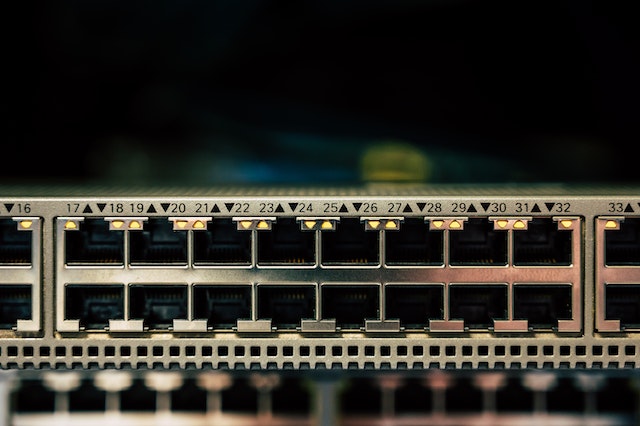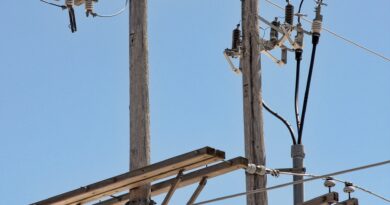Ensuring Safety in Ghaziabad: The Power of Electrical Safety Audits.
Introduction
In today’s rapidly advancing world, electricity has become an integral part of our lives. From powering our homes to fueling industries, it plays a vital role in every aspect of modern society. However, with great power comes great responsibility. Electrical hazards pose a significant risk to both individuals and property. To ensure the safety of the residents of Ghaziabad, electrical safety audits have emerged as a powerful tool. This article explores the importance of electrical safety audits, their benefits, and how they contribute to safeguarding the community.
Table of Contents
- What is an Electrical Safety Audit?
- The Significance of Electrical Safety Audits
- Identifying Potential Electrical Hazards
- Assessing Compliance with Safety Standards
- Enhancing Electrical System Performance
- Mitigating Fire Hazards
- Reducing Risk of Electrical Accidents
- Hiring Professional Electrical Safety Auditors
- Conducting a Comprehensive Inspection
- Analyzing Audit Findings
- Implementing Corrective Measures
- Training and Education
- Regular Maintenance and Monitoring
- Benefits of Electrical Safety Audits
- Conclusion
- FAQs (Frequently Asked Questions)
1. What is an Electrical Safety Audit?
An electrical safety audit is a systematic examination of electrical systems, equipment, and practices to identify potential hazards and ensure compliance with safety standards. It involves a thorough inspection of electrical infrastructure, wiring, circuitry, grounding, and other components to assess their condition and functionality. The primary objective is to minimize electrical risks, prevent accidents, and create a safe environment for individuals and property.
2. The Significance of Electrical Safety Audits
Electrical safety audits are crucial for maintaining safety standards and preventing electrical mishaps. They provide a comprehensive evaluation of electrical systems, enabling proactive measures to address potential hazards before they escalate. By prioritizing safety and compliance, these audits play a pivotal role in ensuring the well-being of the community.
3. Identifying Potential Electrical Hazards
During an electrical safety audit, trained professionals meticulously inspect the electrical infrastructure to identify potential hazards. This includes examining faulty wiring, overloaded circuits, outdated equipment, improper grounding, and inadequate protection measures. By detecting these risks, corrective actions can be taken to eliminate or minimize the chances of accidents and electrical failures.
4. Assessing Compliance with Safety Standards
Electrical safety audits assess the compliance of electrical systems with established safety standards and codes. These standards are set to ensure the proper installation, maintenance, and operation of electrical equipment. By identifying non-compliant areas, audits facilitate necessary upgrades and modifications to meet the required safety criteria.
5. Enhancing Electrical System Performance
Apart from safety considerations, electrical safety audits also focus on improving the overall performance of electrical systems. Auditors analyze factors such as energy efficiency, power distribution, and load management to identify areas of improvement. By optimizing electrical system performance, audits contribute to reducing energy consumption, enhancing reliability, and extending the lifespan of electrical equipment.
6. Mitigating Fire Hazards
Electrical malfunctions are one of the leading causes of fires. Electrical safety audits play a vital role in preventing fire hazards by identifying potential ignition sources, faulty wiring, overloaded circuits, and inadequate grounding. Through timely intervention and corrective measures, audits significantly reduce the risk of electrical fires, protecting lives and properties.
7. Reducing the Risk of Electrical Accidents
Electrical accidents can have severe consequences, ranging from electrocution to severe injuries or even fatalities. Electrical safety audits help mitigate these risks by identifying hazardous conditions and implementing preventive measures. Through proper equipment maintenance, adherence to safety protocols, and employee education, audits create a culture of safety, minimizing the likelihood of accidents.
8. Hiring Professional Electrical Safety Auditors
Conducting electrical safety audits requires specialized knowledge and expertise. It is advisable to hire professional electrical safety auditors who possess the necessary qualifications and experience. These auditors have a comprehensive understanding of electrical systems, safety regulations, and best practices. Their expertise ensures a thorough and accurate assessment, leading to effective safety improvements.
9. Conducting a Comprehensive Inspection
Electrical safety audits involve a detailed inspection of electrical components, including distribution panels, wiring systems, electrical appliances, grounding, and protective devices. Auditors examine each aspect carefully, identifying any deficiencies, potential hazards, or deviations from safety standards. The inspection covers both visible components and concealed wiring systems, leaving no room for oversight.
10. Analyzing Audit Findings
Once the inspection is complete, auditors analyze the gathered data to assess the overall safety status of the electrical systems. They evaluate the severity and potential consequences of identified hazards. This analysis serves as the foundation for developing an effective action plan to address the issues and enhance electrical safety.
11. Implementing Corrective Measures
Based on the findings of the electrical safety audit, corrective measures are implemented to rectify identified hazards and improve safety compliance. These measures can include repairing or replacing faulty wiring, upgrading electrical panels, installing additional safety devices, or implementing preventive maintenance schedules. The goal is to eliminate or minimize potential risks and create a safer environment.
12. Training and Education
Electrical safety audits emphasize the importance of training and education. Employees and residents are educated about electrical safety practices, emergency procedures, and the proper use of electrical equipment. Training programs aim to increase awareness, enhance knowledge, and promote responsible behavior towards electrical systems.
13. Regular Maintenance and Monitoring
Electrical safety is an ongoing process. After implementing corrective measures, regular maintenance and monitoring become crucial to sustain a safe environment. Scheduled inspections, routine maintenance activities, and periodic audits ensure that electrical systems continue to meet safety standards and remain hazard-free.
14. Benefits of Electrical Safety Audits
Electrical safety audits offer numerous benefits to both individuals and the community as a whole. These include:
- Prevention of electrical accidents and injuries.
- Protection of property from fire hazards.
- Compliance with safety regulations and standards.
- Optimization of electrical system performance.
- Energy efficiency and cost savings.
- Increased reliability and reduced downtime.
- Enhanced employee and resident safety.
- Peace of mind and confidence in the electrical infrastructure.
Conclusion
Ensuring safety in Ghaziabad requires a proactive approach towards electrical hazards. Electrical safety audits provide a powerful means to identify potential risks, assess compliance with safety standards, and implement corrective measures. By prioritizing safety, conducting regular audits, and fostering a culture of responsibility, Ghaziabad can create a secure environment for its residents. The power of electrical safety audits lies in their ability to prevent accidents, protect lives and property, and contribute to the overall well-being of the community.




